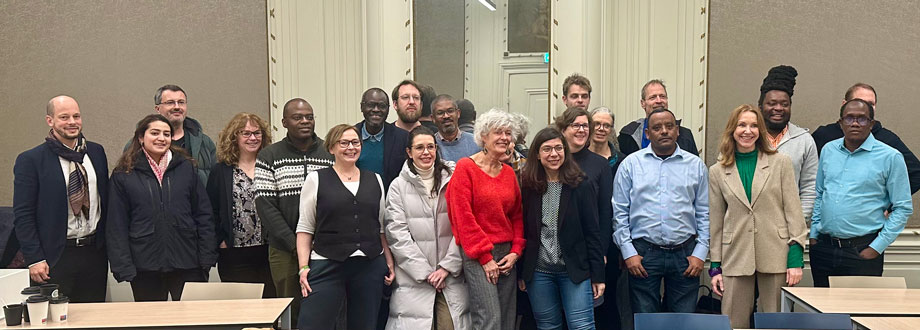Closing conference Decoding Digital Media in African Regions of Conflict (DDMAC)
 On 23-24 January 2025, the research project Decoding Digital Media in African Regions of Conflict (DDMAC) hosted its closing conference in Utrecht, showcasing key achievements of the project and exploring potential future directions.
On 23-24 January 2025, the research project Decoding Digital Media in African Regions of Conflict (DDMAC) hosted its closing conference in Utrecht, showcasing key achievements of the project and exploring potential future directions.
The key goal of the DDMAC project has been to gather empirical evidence defining and demonstrating the use, spread, content, and agenda-setting role of social media in regions of conflicts in Africa, notably Ethiopia and Mali.
Through an ambitious interdisciplinary approach combining media and conflict studies, anthropology and computational social science, and a wide range of methodologies ranging from focus groups interviews, nethnographies, 'scraping' of a large amount of social media data, network analysis, media content tracking, and discourse analysis, the project has gained important new knowledge of how disinformation and hate speech spread through digital networks, the role of diasporas in conflicts, and the relationship between digital media and traditional media (radio) in regions with relatively low internet connectivity.
The event featured a diverse array of panels and discussions covering topics such as Conflict Journalism, Digital Authoritarianism, Digital Media Narratives, and the Challenges and Opportunities in Interdisciplinary Research. Thought-provoking keynotes were given by Ansgard Heinrich from the University of Groningen and Emma Heywood from the University of Sheffield. The programme also included the launch of the book Ecologies of Global Risk Journalism (Routledge, 2025), that investigates the practice and challenges of journalism addressing globalised risk from various world regions.
DDMAC is a cooperative venture between the African Studies Centre Leiden and Oslo Metropolitan University (Oslomet), Utrecht University, University of Addis Abeba, Voice4Thought, and Digital Humanities Leiden.

